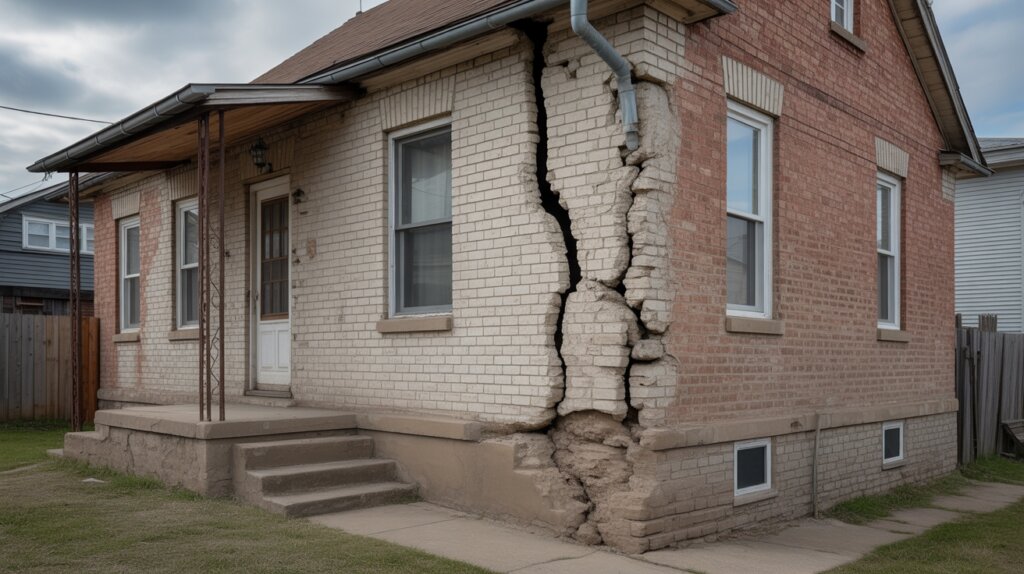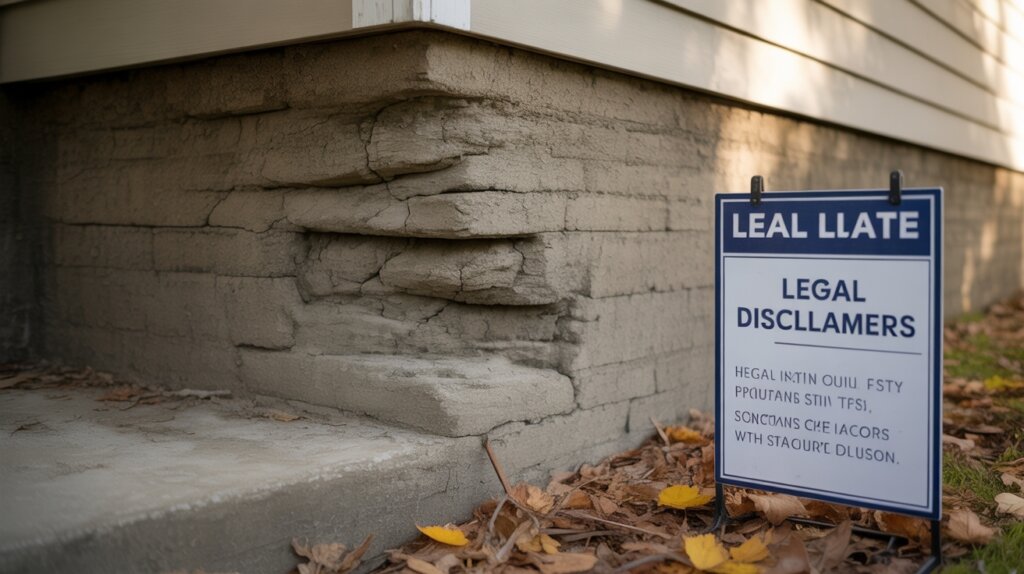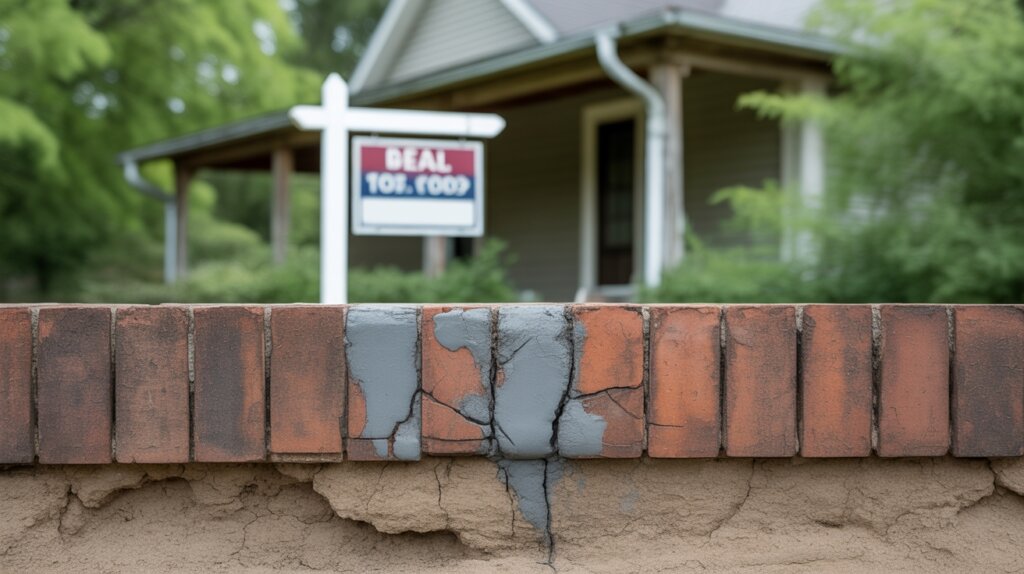Selling a house with foundation issues can be stressful and confusing. Many homeowners worry about how these problems affect value and legality. You may wonder what you are required to tell buyers.
If you ignore or hide foundation problems, you risk lawsuits and expensive penalties. Buyers can discover hidden defects through inspections or research. This can lead to broken deals and damaged reputations.
You must disclose known foundation issues to buyers to avoid legal trouble and ensure a fair sale. Honest communication protects you and the buyer.
Following the law helps you avoid future problems. This blog will guide you through the steps to sell your home with foundation issues the right way.
Key Takeaways
- Sellers are legally required to disclose all known foundation issues and related repairs to potential buyers in most states.
- Failure to disclose foundation problems can result in lawsuits, contract cancellation, fines, or other penalties.
- Home inspections and clear contract contingencies help identify and address foundation issues before closing.
- Foundation defects may lower property value and affect buyer financing or loan approval.
- Maintaining documentation of inspections, repairs, and disclosures protects sellers from future legal disputes.
Understanding Foundation Issues and Their Impact on Home Value

Foundation issues lower a home’s value and weaken its structure. Buyers and lenders may see the property as risky. A professional inspection will show the extent of any damage. Title search and resolution can identify legal problems related to foundation claims or liens. Cracks in walls, uneven floors, or doors that stick can signal foundation problems.
These warning signs should not be ignored. If you repair the foundation, you may recover some lost value. Repairs also make your home safer and more appealing to buyers. Conducting a thorough title review early in the process can help prevent unexpected legal complications. Waiting too long often leads to bigger losses at sale.
State and Local Disclosure Laws for Structural Problems
You must follow state and local laws that require you to disclose any known structural problems, including foundation issues, to potential buyers. Failing to comply with these mandatory disclosure requirements can lead to significant legal and financial penalties.
To protect yourself, understand exactly what your jurisdiction demands and document all disclosures thoroughly. Additionally, knowing how to navigate disclosure laws related to property condition can help prevent future legal disputes.
Mandatory Disclosure Requirements
State and local laws usually require you to tell buyers about known problems with a home’s foundation. Sellers must fill out disclosure forms with true information about any repairs or ongoing issues. If you do not share these facts, you may face problems later in the sale process.
Most states require you to list foundation repairs, including the date, contractor, and warranty details. You also need to describe any active cracks or shifting, noting the location and severity. Some states will ask about past water leaks or ongoing monitoring, and you should provide inspection results if required.
If you are unsure about what to disclose, you should talk to your realtor or a lawyer. These experts can help you follow all the rules in your area. Taking these steps reduces the risk of disputes and helps buyers trust you.
Penalties for Non-Disclosure
Failing to disclose known foundation problems can result in legal and financial penalties. Homeowners must report all structural issues before signing a sales contract. Each state has different rules about what and when to disclose.
If you hide or delay information about foundation damage, the buyer may sue or cancel the sale. Courts can order you to pay for repairs or damages. Some states may even file criminal charges if you act dishonestly.
Written documentation is important when disclosing problems. Meeting all deadlines for disclosure helps you avoid penalties. If you are transparent, you protect yourself and make the sale process smoother.
Seller’s Duty to Disclose Known Defects

Sellers must tell buyers about any foundation defects they know about. This is a legal requirement. If sellers hide these problems, they may face legal trouble. Deciding when to sell your house to a cash buyer can influence the urgency of disclosure, especially if a quick sale is needed due to financial or personal circumstances. Buyers need to know about defects to make informed choices.
If a seller does not share this information, the sale could fall through. Lenders might also refuse loans if defects are found during inspection. Full disclosure builds trust and helps avoid future disputes. It also makes the closing process smoother. Legal obligations require honesty about known issues to prevent potential legal or financial problems later. If you are honest, you protect yourself from legal or financial problems later.
What Counts as a Material Defect?
A material defect is a problem that affects a home’s value or creates a safety risk for people living there. If you are selling a house with foundation issues, you must disclose any material defects. Laws require sellers to share these details with buyers. A step-up in basis can influence the perceived value of the property and the associated disclosure requirements. Big foundation cracks that affect the home’s structure count as material defects.
Repairs that have failed or need more work are also material defects. Water leaks or ongoing dampness from the foundation are included too. If the foundation was repaired but not up to code or not documented, it is a material defect. Disclosing these problems keeps you within the law. It also helps protect you from legal trouble later. Legal documentation can be essential in proving the history of repairs and disclosures related to foundation issues.
The Role of Home Inspections in the Selling Process

A home inspection is very important when selling a house with foundation problems. It shows the exact condition of your home to all parties. If you get an inspection before listing, you will know about any issues early. Additionally, understanding potential liens or encumbrances on the property through a detailed inspection process can help prevent surprises during closing. The inspection report helps buyers and lenders understand the risks.
Lenders may not approve loans without proof that foundation issues are disclosed. Some lenders might also require repairs before final approval. If you arrange an inspection early, you can prepare for negotiations. This lets you get repair estimates or adjust your price. Transparency about title defects can also increase buyer confidence and facilitate a smoother transaction. Buyers may trust you more if you are open about the home’s condition.
Legal Risks of Failing to Disclose Foundation Issues
If you do not tell buyers about foundation problems, you face serious legal risks. Courts require sellers to give honest information about a house. Hiding issues can result in lawsuits or other penalties.
Litigation may happen if buyers find hidden defects later. They could sue for repair costs or cancel the sale. You might have to return the buyer’s money and keep the damaged house. Proper disclosure procedures can help prevent these issues.
Local laws often require full disclosure of property problems. If you break these rules, government agencies could fine you. Your reputation as a seller could also suffer.
Transparent disclosure helps prevent legal trouble. Expert inspections can give buyers confidence in the deal. If you are honest, buyers are more likely to trust you. Additionally, understanding disclosure requirements can help you comply with local regulations and avoid penalties.
Buyer’s Rights When Foundation Problems Are Discovered
When you find foundation problems after making an offer or closing, you have important rights under real estate law. Sellers must meet strict disclosure obligations, and if they fail, you may have options to terminate the contract or seek remedies. Understanding these protections helps you respond quickly and protect your investment. Additionally, legal professionals can assist in resolving title issues that may complicate the sale process, especially when a clear title is not readily obtainable.
Disclosure Obligations to Buyers
You must tell buyers about any foundation issues when selling your home. Most states require you to share this information by law. Not doing so can cause legal trouble or stop the sale.
Sellers should keep all records of foundation repairs and inspections. These documents show what work has been done. If you have these records, you need to share them with buyers.
Known foundation problems must be listed in your disclosure forms. These forms are part of the selling process. Buyers should get copies of any repair bills or engineer reports.
If buyers have questions about the foundation, you must answer honestly. Giving full information helps avoid future disputes. Being open protects both you and the buyer.
Options for Contract Termination
If you find foundation problems during the sale, you may have the right to end the contract. Most contracts let buyers cancel if an inspection finds serious issues. You should check your contract for specific conditions that allow termination.
Buyers can often walk away if the home is unsafe or cannot be insured. If the bank refuses your loan because of the damage, you may cancel the agreement. Some contracts also let you leave if environmental hazards are discovered.
If the seller will not fix the problem, you may ask to renegotiate or end the contract. Your options depend on the contract terms. Always read your agreement and talk to a lawyer before making a choice.
Navigating Transaction Contingencies Related to Structural Defects
Structural defects, like foundation problems, can lower a home’s value and create safety risks. Buyers and sellers need clear rules in the contract to manage these risks. Transaction contingencies can help protect both sides if foundation issues come up.
A professional must check the structure to find out how serious the defect is. The contract should set deadlines for inspections and for the buyer to respond. If defects are found, the contract must explain what happens next. Including a home inspection clause can provide an additional safeguard for both buyer and seller.
Additionally, the contract should specify the procedures for assessing damage and determining repair costs, which are crucial steps in handling foundation issues. The agreement should say who will pay for any needed foundation repairs. It should also list what repairs are needed and when they must be finished. If the problems are major, the contract should allow for price changes or canceling the sale.
Working With Real Estate Agents: Their Legal Responsibilities
Real estate agents have legal duties to protect your interests during a sale. They must disclose any known problems with the property. Agents also guide you through the paperwork and help handle escrow.
If you are buying or selling, an agent makes sure you follow all state rules. Agents coordinate needed inspections and keep everyone updated. This helps lower your risk of legal issues.
The table below shows the main legal duties of an agent:
| Legal Duty | Agent’s Role in Sale Process |
|---|---|
| Disclosure of Defects | Tell buyers about any foundation problems |
| Title Transfer Assistance | Arrange correct paperwork |
| Escrow Procedures Guidance | Make sure money and documents are managed well |
| Negotiation Representation | Help with offers and counteroffers |
If you work closely with your agent, you will have a more transparent and safe sale. This reduces your chance of costly mistakes. An agent’s support helps you meet legal requirements with confidence.
How Lenders View Homes With Foundation Problems
Lenders are often wary of homes with foundation problems. They see these issues as a risk and may hesitate to approve a loan. If a buyer wants a mortgage, lenders will look closely at the home’s condition.
The appraiser checks the foundation and reports any damage. If the damage is serious, the home’s value may drop. Lenders may deny the loan or ask for repairs before moving forward.
Some loan types, like FHA, VA, and USDA, have stricter rules. Lenders will require documentation about the foundation’s condition. If repairs are needed, they may make loan approval conditional on fixing the problem.
Knowing how lenders think can help sellers prepare. If you understand the process, you can plan for possible delays or extra costs. This helps you make better decisions when selling a home with foundation issues.
Options for Repairing Versus Selling As-Is
When your home has foundation issues, you must choose to repair or sell as-is. Repairing the foundation can raise your home’s value. It may also attract more buyers and make the sale process easier.
Repair work needs money, time, and good contractors. If you sell as-is, you avoid repair costs but may get a lower price. Fewer buyers may be interested in a home with known problems.
All sellers must meet disclosure laws. You should tell buyers about any foundation issues and repairs. Honest disclosure protects you from legal problems and helps buyers trust you.
Using “As-Is” Clauses and What They Really Mean Legally
When you list your property “as-is,” you’re stating that the house comes with its current defects, including foundation issues. However, you still need to meet strict disclosure requirements, as failing to inform buyers can create legal risks. Understanding what an “as-is” clause covers—and what it doesn’t—helps you protect yourself while ensuring buyers retain important legal rights.
Defining “As-Is” Property
Selling a house “as-is” means you are offering it in its current condition. You will not make repairs or improvements before closing. Buyers must accept the home as it stands.
If you sell “as-is,” you still need to provide accurate information about the property. Property value and repair costs should be clear to buyers. Buyers will consider any problems, including foundation issues, when making offers.
“As-is” does not protect you from all legal responsibilities. Buyers may offer less or negotiate more based on repair needs. Honest and clear information helps make the sale process smoother.
Seller Disclosure Obligations
If you sell a house “as-is,” you still must tell buyers about known foundation problems. The law requires you to disclose issues like cracks or settling. You must also share any past repairs or advice from a structural expert.
State or local laws often make you fill out a disclosure form. This form lists all material defects related to the foundation. If you hide or misstate problems, you could face lawsuits or lose the sale.
You should keep records of all inspections and repairs. If buyers ask, you must provide these documents. Accurate and complete information protects you from future disputes.
Buyer Legal Protections
An “as-is” clause means you accept the property’s condition at the time of purchase. If the seller hides known problems, you still have legal rights. This clause does not remove all your protections as a buyer.
Buyers should get a licensed inspector to check the property before closing. Inspection helps reveal any hidden foundation problems. If issues appear, you may reconsider your offer.
Always ask for documents on previous repairs or permits. These records show what work was done on the foundation. Missing documents could be a warning sign.
Consulting a real estate attorney is important before you sign. The attorney can check if the “as-is” clause is valid in your state. Legal advice helps you understand your rights.
If your offer includes contingencies, you can back out if you find major foundation issues. Contingencies protect your money and legal standing. You may also renegotiate the price if needed.
Potential for Lawsuits After the Sale
Lawsuits can still happen after selling a home with foundation issues. If buyers find hidden problems or doubt your inspection, they may sue. Common legal claims include misrepresentation, nondisclosure, negligence, breach of contract, and fraud.
Buyers may argue that you downplayed or hid the damage. They might say you ignored needed repairs or failed to share inspection reports. If you did not fulfill repair agreements, buyers could use this as a legal reason.
Careful records and honest disclosures reduce the risk of disputes. Keeping proof of inspections and repairs can help protect you. If you are unsure, talking to a real estate lawyer is wise.
Steps to Protect Yourself From Future Liability
To avoid future legal problems when selling a house with foundation issues, you must be open and honest. Buyers and lenders will examine the property closely. If you handle concerns early, you can help buyers with loans and taxes.
You should always disclose known foundation issues in writing. A professional inspection report can show buyers you are being transparent. If you share these documents, you reduce the risk of disputes.
Keep records of all repairs and any related conversations. If you consult a real estate attorney, you can make sure your paperwork follows the law. These steps can protect you from future claims.
Conclusion
If you are selling a house with foundation issues, you should always follow local disclosure laws. If you disclose all known problems, you can protect yourself from legal trouble. If you get professional advice, you will feel more confident during the sale.
If you want to sell your house quickly, we can help. If you sell to us for cash, you avoid repairs and long waits. We buy houses in any condition, including those with foundation issues.
If you are ready to sell or have questions, contact Greg Buys Houses today. We can guide you through the process. We are here to make your sale easy and stress-free.

